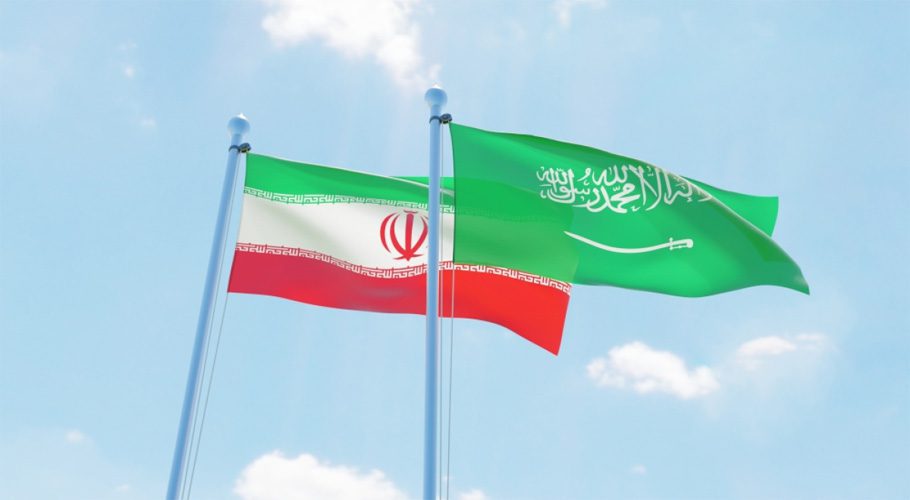Aga Khan III, laid the foundation of humanitarian work, focusing on education that proved to be a beacon of light for Prince Karim Aga Khan. The successor, the Aga Khan not only gave impetus but expanded the scope and spectrum of the ongoing work of the Aga Khan III and carried the flag forward that is adored by the world community.
Aga Khan III stands as an extraordinary figure in the history of the Indian subcontinent. His remarkable contributions to the cause of freedom and liberation, as well as his unwavering dedication to humanity, have left an indelible mark on our collective conscience. The dynamic persona of Sir Sultan Muhammad Shah Aga Khan encompasses a profound commitment to the freedom of Muslims, a pivotal role in the revival of Islamic values, and a global reputation that remains unparalleled. Recognizing the significance of these contributions is crucial, as they form an integral part of Pakistan’s struggle for independence and the broader tapestry of historical events.
As a visionary leader and an esteemed champion of the Muslim community in the subcontinent, Aga Khan III dedicated a substantial portion of his life to confronting the challenges faced by Muslims in the educated world. He firmly believed in the transformative power of education, emphasizing the development and preservation of Islamic values. Aga Khan III’s views on the coexistence of Muslims and Western culture can be linked to the peaceful ideals espoused by Sir Syed Ahmad Khan. In this regard, he advocated for Muslims to embrace adaptation and integration while upholding their religious and cultural identities.
Born on November 2, 1877, in Karachi, Sir Sultan Muhammad Shah Aga Khan emerged as a towering personality, whose invaluable services to the nation and its people are immeasurable. At the tender age of seven years and nine months, he was appointed as the 48th Imam of the Ismaili Jamaat following the untimely demise of his father, Aga Khan II, in 1885. Recognizing the significance of education, epitomized by the Quranic verse “Iqra” (Read), which emphasizes its paramount importance, he established the Aga Khan School in Gwadar in 1905, aiming to equip Muslims in the subcontinent with the precious gem of modern education.
In 1906, Aga Khan played a pivotal role in the formation of the All-India Muslim League. It is widely believed that Sir Sultan Muhammad Shah Aga Khan’s support for the Aligarh movement played a significant role in his services to the Muslims of India. Nawab Mohsin-ul-Mulk, a prominent figure in the Aligarh movement, in one of his visits to Bombay, developed a friendship with Aga Khan III. Their engaging discussions and concerns about the educational plight of Muslims laid the foundation for this connection. Nawab Mohsin-ul-Mulk presented the objectives of the Aligarh movement to Sir Sultan Muhammad Shah Aga Khan.
In 1896, Aga Khan III visited Aligarh and met Sir Syed Ahmed Khan, the visionary behind the Aligarh movement. Sir Syed Ahmed Khan warmly welcomed Aga Khan III and delivered a Persian speech praising his purposeful visit. In response, Aga Khan III expressed his resolve while delivering his speech in Persian that Sir Syed’s institution was unparalleled in the subcontinent and throughout the Islamic world, emphasizing the need for Muslims to embrace modern education including science and technology. This resounding speech infused Muslims with immense hope for a brighter future, and it is perceived that the educational institution referred to was initially the MAO College, which later transformed into Aligarh University that continuously imparting modern education to Muslims.
Following his speech, on March 27, 1898, Sir Syed Ahmad Khan passed away, and Nawab Mohsin-ul-Mulk assumed the leadership of the Muslim community’s educational pursuits. Seeking cooperation from Sir Sultan Muhammad Shah Aga Khan, he received a commitment to promote the Aligarh Movement nationwide, with the goal of encouraging Muslims to pursue education and dispelling the misconception that modern education was incompatible with religious beliefs. Aga Khan III recognized the profound implications of Muslims lacking modern education, which would inevitably result in their lagging behind other nations. With great zeal, he actively encouraged Muslims to embrace modern education, science, and technology while adhering to their Islamic principles and values. He advocated for a harmonious balance between tradition and progress, empowering the Muslim community to move forward as a confident and enlightened nation without compromising their religious convictions.
During that era, two distinct ideologies clashed in the Indian subcontinent—one advocating for freedom and the other demanding a separate homeland for Muslims. Aga Khan III firmly believed in the two-nation theory, which ultimately led to the united front against British rule and the subsequent call for an independent state for Muslims. Aga Khan III played a pivotal role in shaping public opinion, garnering widespread acceptance for the establishment of a sovereign Muslim state. His unwavering determination and matchless courage inspired countless individuals, laying the groundwork for the eventual creation of Pakistan.
Apart from his profound political contributions, Aga Khan III was revered for his extensive humanitarian initiatives. He established numerous educational institutions that have brightened the lives of countless individuals across the globe, particularly in the Indian subcontinent. These institutions nurtured future leaders who were prepared to contribute to the development and prosperity of their respective societies.
Aga Khan III’s impact extended into the healthcare sector as well. He founded hospitals, clinics, and dispensaries, providing vital medical services to those in need. Recognizing the significance of addressing poverty and fostering the development of marginalized communities, he initiated agricultural reforms and rural development projects. Understanding the importance of food security, he actively promoted socio-economic endeavors that empowered individuals and communities, transcending borders and leaving a lasting impact.
Even in the wake of Aga Khan III’s passing, the tireless efforts he dedicated to shaping the lives of Muslims in Pakistan and beyond continue to bear fruit. Prince Karim Aga Khan, his successor, has upheld his grandfather’s spirit of compassion and embraced his ideals, particularly in the areas of education, healthcare, and socio-economic development. Under the umbrella of the Aga Khan Development Network, institutions like the Aga Khan Education Services, Aga Khan University, and Aga Khan Health Services persistently dedicate themselves to selfless service for the people of Pakistan and beyond. These institutions serve as inspiring examples within society, paving the way for their emulation at the official level in numerous countries.
The teachings of Aga Khan III have nurtured ideals of pluralism, tolerance, and social harmony, creating an inclusive environment where individuals of diverse backgrounds, opinions, and ideas not only peacefully coexist but also collaborate towards shared objectives. Today, Prince Karim Aga Khan carries forward his grandfather’s legacy, leading these institutions towards remarkable progress in alignment with the demands of the modern era. Through their combined endeavors, they have cultivated leaders, scholars, and professionals who actively contribute to the advancement and prosperity of humanity at large.
Aga Khan III’s unwavering dedication to the cause of freedom, his resolute commitment to humanity, and his profound contributions to education, healthcare, and socio-economic development have enshrined his legacy for eternity. His pivotal role in the struggle for independence, his endorsement of the two-nation theory, and his relentless advocacy for the rights and interests of Muslims have indelibly shaped the history of the subcontinent. The reverberations of his efforts persist to this day, molding the destinies of nations and serving as a timeless inspiration for future generations.




























